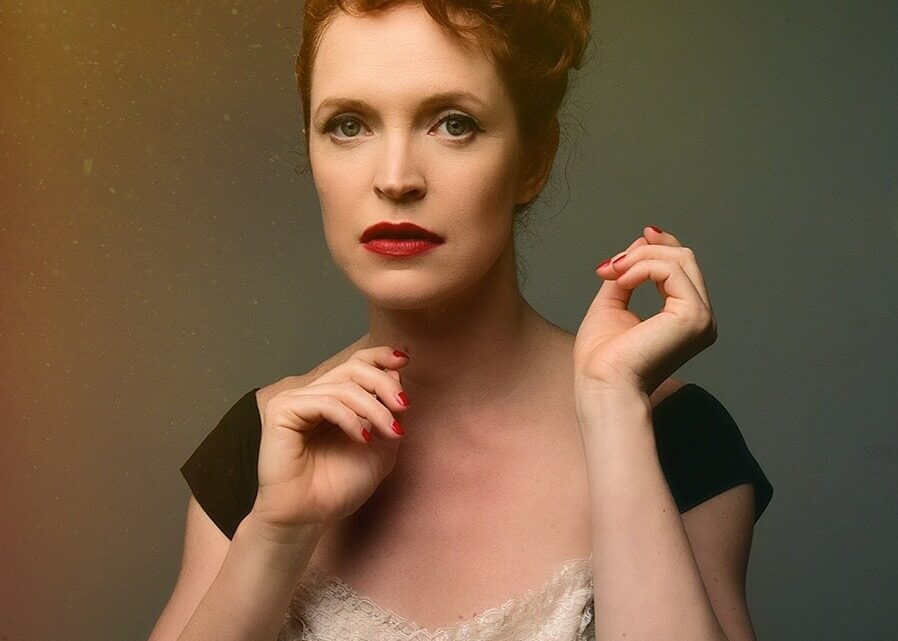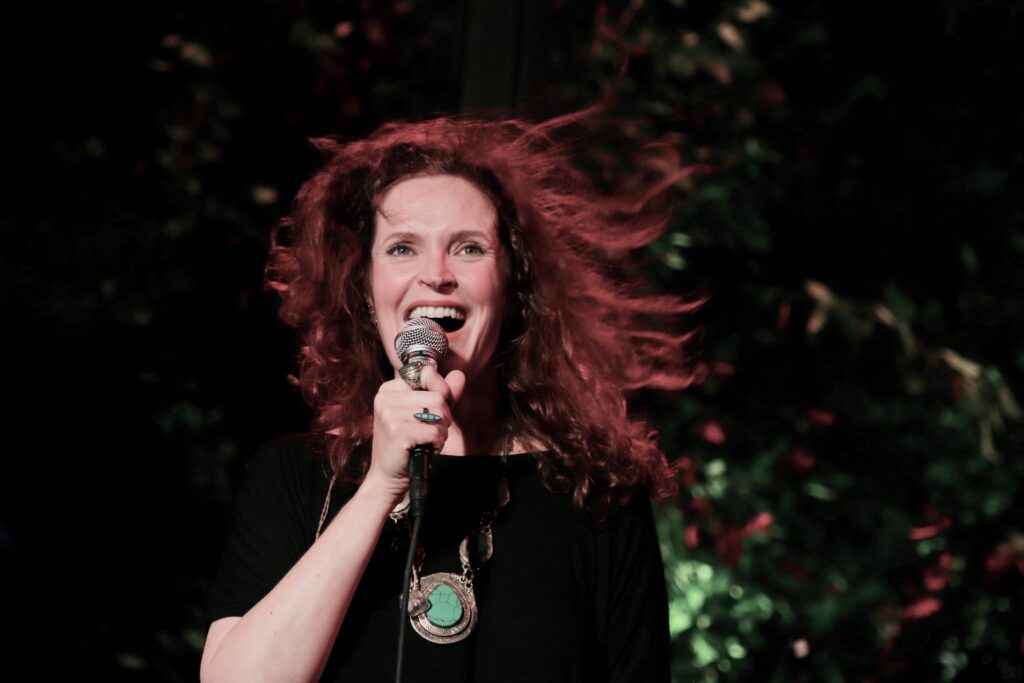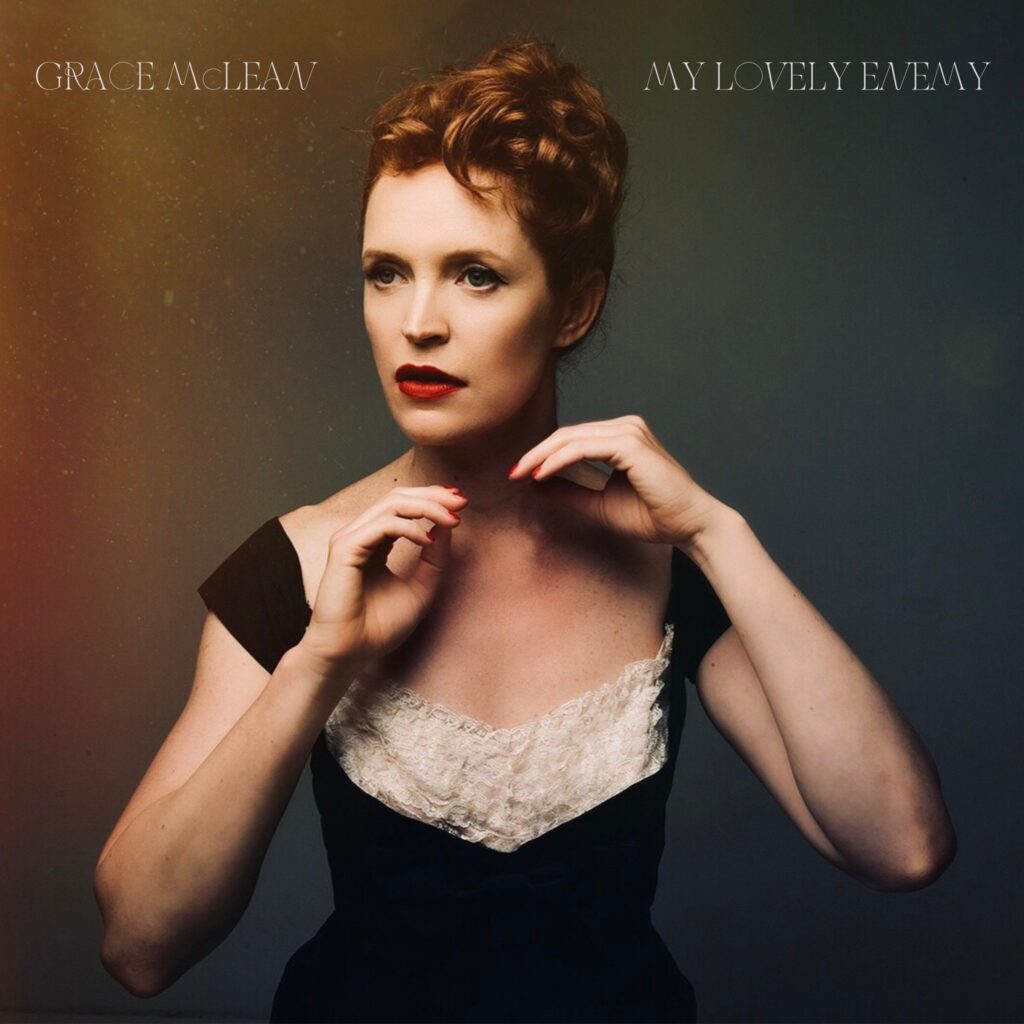Prolific performer Grace McLean reveals all about her early experiences with songwriting, journey to broadway, and the backstory of her newest eclectic album
By Edwin Fairbrother
Songwriter Spotlight: Grace McLean
With many strings to her bow (although not a violinist), Grace McLean has been writing and releasing intriguing, captivating and eclectic music for over 12 years. Also being a seasoned actor, she tells SoundSight Mag all about the latest addition to her catalogue My Lovely Enemy (including who is the enemy), all her amazing inspirations and former mentors, as well as how broadway stacks up against the music business.

Ed: Hello, Grace McLean. You’re a songwriter, artist, and actress based in New York. How are you doing today?
Grace: Oh, I’m feeling wonderful, Ed. How are you?
Ed: I’m very well, thanks. Great to be talking with you today. My first question is, how did the environment you grew up in influence you to make music?
Grace: Sure! I grew up in Southern California, and my parents were musicians, so I was around music a lot. This was before DJs were a thing, so there were bands for every occasion, and that was my parents. They were in a variety of bands—pop rock, Latin, country, you name it. They converted our garage into a rehearsal space, and I remember helping them bring their gear to gigs and then going home to bed. My mom is a singer, and my dad played bass and also sang. When I was in elementary school, I wanted to join the after-school music program and play the drums, but my parents had a saxophone, so I learned to play the tenor saxophone when I was seven.
Ed: Wow, that’s quite a musical upbringing! So, did you continue playing the sax?
Grace: I played the sax for a few years but stopped around 14 or 15 when I started high school and focused more on singing. I still have that sax, and I got it cleaned up a couple of years ago. I saw a band use saxes in a really cool, percussive way, and it inspired me to think about how I could incorporate my saxophone into my music.
Ed: That sounds amazing! Did you ever fulfil your initial desire to play the drums?
Grace: Not yet, though I have a Christmas present of drum lessons from my husband that I haven’t cashed in on. I love rhythm and think of music in that way. Even though I’m not a drummer, I’m interested in making interesting, percussive music.
Ed: Speaking of your music, who’s the drummer on your latest album?
Grace: His name is Hiroyuki Matsuura, also known as Matsu. I’ve been working with him since 2009. He can do anything. Initially, I wanted something minimalist, so we used a cajón. Matsu is incredibly versatile and has a lot of interesting toys like bowls and chopsticks, which he uses to create unique sounds. He’s really fun to play with.
Ed: He sounds very talented. Who are your biggest influences, and what usually inspires your music?
Grace: I love female singer-songwriters like Fiona Apple. Her album “Fetch the Bolt Cutters” is like reading a book of sonic poetry. I also love Tune Yards and what Merrill Garbus does with a looping station. I got into looping through Reggie Watts, who is both a musician and a comedian. I also admire Caroline Shaw and her work with Roomful of Teeth, an a cappella group that explores the capabilities of the human voice in fascinating ways. Cosmo Sheldrake is another inspiration; he uses natural sounds in his music, which is really fun and funky.
Ed: That’s an interesting mix of influences. How would you describe your music to someone who hasn’t heard it before?
Grace: I describe it as avant-garde pop. It’s not terribly experimental, but it pushes the boundaries of what pop can be. It’s fun to listen to, kind of danceable, poetic, and authentic, but not necessarily what you’d hear at the grocery store.
Ed: That’s a great description. When did you start writing and playing music seriously?
Grace: It really started when I moved to New York for college. I studied at NYU and was part of the Experimental Theatre Wing, which emphasizes creating your own work. I worked with Elizabeth Swados, a prolific downtown composer, who taught me about the power of ferocity, rage, and understanding your audience. She pushed me to write and perform my own material, which was terrifying but ultimately rewarding.
Ed: What piece of advice would you give to your younger self?
Grace: Lean into your weirdness and find out what your obsessions are. Even if they don’t make sense in your life, indulge them. Also, have craft around what you make. It’s important to understand your boundaries and push them a little bit.
Ed: Great advice! What was the biggest challenge you faced while making your album “My Lovely Enemy”?
Grace: The biggest challenge was the waiting. Recording the songs and getting people together was actionable, but then there were delays due to the pandemic and other life events. Finding the right mixer was also a challenge, but when we found Jack, he transformed the music into a beautiful landscape.
Ed: It sounds like it was worth the wait. Can you talk us through how you wrote “Everybody Loves” from your latest album?
Grace: I wrote “Everybody Loves” after a breakup. Initially, I was mad, but then I felt a sense of possibility and freedom. The song was written in a series of voice memos while walking home from the subway in the rain. My favorite lyric is “My shoes are wet, my face is wet, you’ll never get me back again.” It captures the discomfort of that moment but also a feeling of empowerment.
Ed: That’s a powerful image. Who is the enemy in the title track “My Lovely Enemy”?
Grace: The enemy is inspired by Hildegard von Bingen’s work about St. Ursula. It’s about gratitude towards the oppressor because martyrdom leads to union with the divine. The song is about transforming horrible experiences into opportunities for growth and enlightenment.
Ed: That’s a deep concept. How was it playing President Woodrow Wilson in the musical “Suffs”?
Grace: It’s fun to play the villain, especially a man in a show about women’s rights. It allows me to step into a completely different worldview. I’ve been working on this part for about seven years, and it’s been an interesting journey.
Ed: What do you find more challenging, Broadway or the music business?
Grace: Both have their challenges. Broadway is tough because there are limited theaters, and it’s expensive to put up a show. The music business is challenging in its own way, but I love being an independent artist because I have creative control over my work. It’s a long-term investment that I’m happy to make.
Ed: What’s your favorite thing about being an independent artist?
Grace: Having the creative freedom to make my own decisions and invest in my craft. Even if nobody listened to my music, it’s something I have to do. It scratches a creative itch and allows me to create something unique that hopefully resonates with others.
Ed: Can you talk us through the creation of your song “Everybody Loves” and share a favorite lyric from it?
Grace: “Everybody Loves” was written after a breakup, and it reflects a mix of anger and newfound freedom. My favorite lyric is “My shoes are wet, my face is wet, you’ll never get me back again.” It captures the discomfort of that moment but also a feeling of empowerment and liberation.
Ed: That’s a powerful image. Thank you for sharing that. It’s been wonderful talking with you, Grace. Your insights and experiences are truly inspiring.
Grace: Thank you, Ed. It’s been a pleasure.
Check out her amazing new album My Lovely Enemy below!




